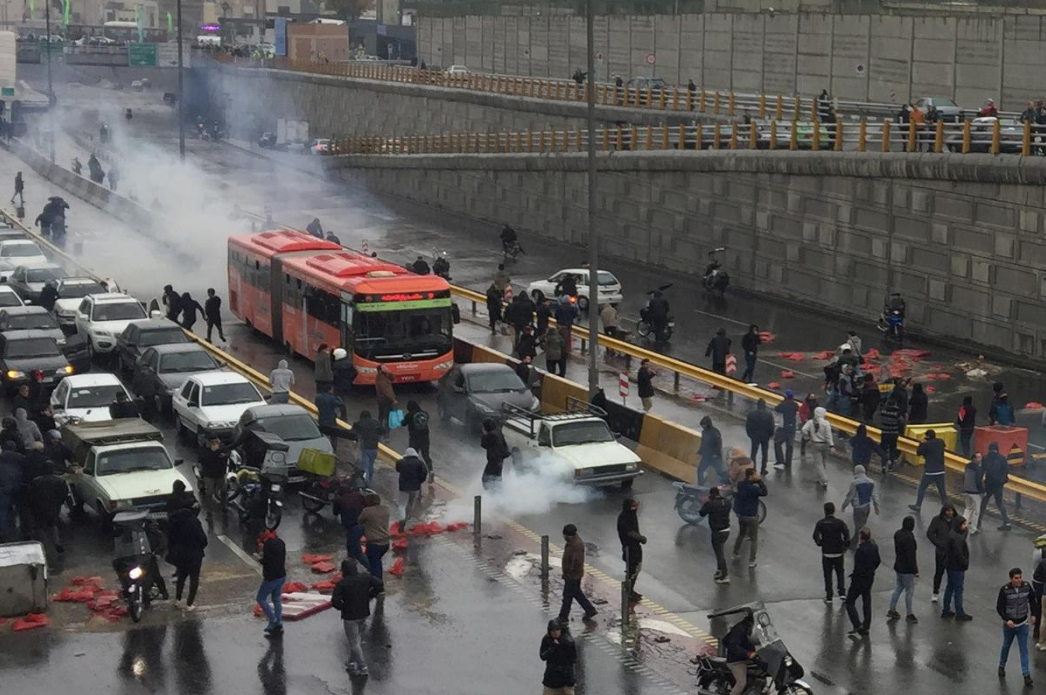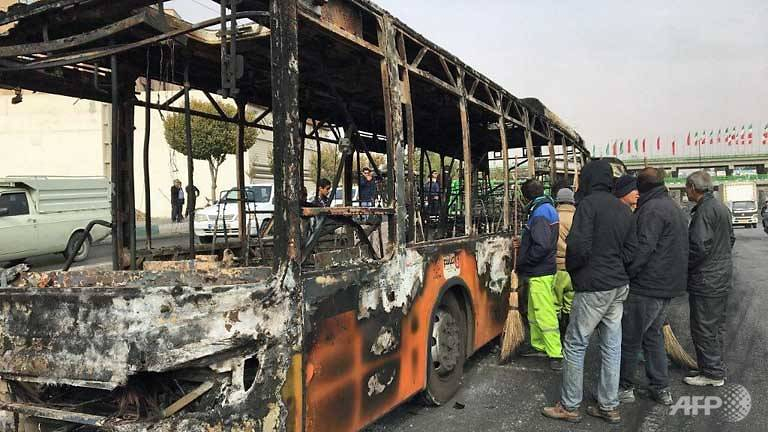Iran's Supreme Leader Ayatollah Ali Khamenei on Sunday backed the gasoline price hikes that have caused nationwide protests, which he blamed on the Islamic Republic's opponents and foreign foes.
"Some people are no doubt worried by this decision ... but sabotage and arson is done by hooligans not our people," he said in a live speech on state TV.
Protesters clashed with police in Tehran and dozens of other cities on Saturday, Iranian news agencies and social media said, a day after the government increased the price of gasoline.
"The counter-revolution and Iran's enemies have always supported sabotage and breaches of security and continue to do so," Khamenei said. "Unfortunately some problems were caused, a number of people lost their lives and some centers were destroyed."
Iranian President Hassan Rouhani also warned Sunday that riot-hit Iran could not allow "insecurity."
"People have the right to protest. But that is different from riots. We cannot let insecurity in the country through riots," he said.
Rouhani defended the controversial petrol price hike that triggered the protests – a project which the government says will finance social welfare spending amid a sharp economic downturn.
Tehran says the gasoline price increase is expected to raise around 2.55 billion U.S. dollars a year for extra subsidies for 18 million families, or about 60 million Iranians, on lower incomes.
Khamenei called on officials to prevent hikes in prices of other goods.

People protest against increased gas price on a highway in Tehran, Iran, November 16, 2019. /Reuters Photo
People protest against increased gas price on a highway in Tehran, Iran, November 16, 2019. /Reuters Photo
Some Iranian lawmakers, who planned to discuss ways to force the government to revise its decision, withdrew their motion after Khamenei's Sunday speech, Iran's state media reported.
Iran's Intelligence Ministry said in a statement reported by Tasnim news agency that the protest's leaders had been identified and "appropriate action" was being taken.
One person died in the southeastern city of Sirjan on Friday, officials said, while social media cited several others as fuel price protests turned political with slogans calling for top officials to step down.
State news agency IRNA said one police officer was killed on Saturday in the protests, which struck more than 100 Iranian cities and towns. Iran's semi-official Fars news agency said 1,000 protesters had been arrested and 100 banks torched.

Iranians inspect the wreckage of a bus that was set ablaze by protesters during a demonstration against a rise in gasoline prices in the central city of Isfahan, Iran, November 17, 2019. /AFP Photo
Iranians inspect the wreckage of a bus that was set ablaze by protesters during a demonstration against a rise in gasoline prices in the central city of Isfahan, Iran, November 17, 2019. /AFP Photo
'Peaceful protest'
The administration of U.S. President Donald Trump, which has dropped out of an international nuclear deal with Iran and reinstated economic sanctions, expressed support for what it called "peaceful protests against the regime."
"We condemn the lethal force and severe communications restrictions used against demonstrators," the White House said. "Tehran has fanatically pursued nuclear weapons and missile programs, and supported terrorism, turning a proud nation into another cautionary tale of what happens when a ruling class abandons its people."
Tehran often accuses exiled opponents as well as the United States, Israel and Saudi Arabia of trying to destabilize Iran through online propaganda campaigns.
Although Tehran raised the price of regular gasoline to 15,000 rials a liter from 10,000 rials and also imposed rationing, with additional purchases costing 30,000 rials per liter, the fuel is still among the cheapest in the world.
(Input from AFP, Reuters)